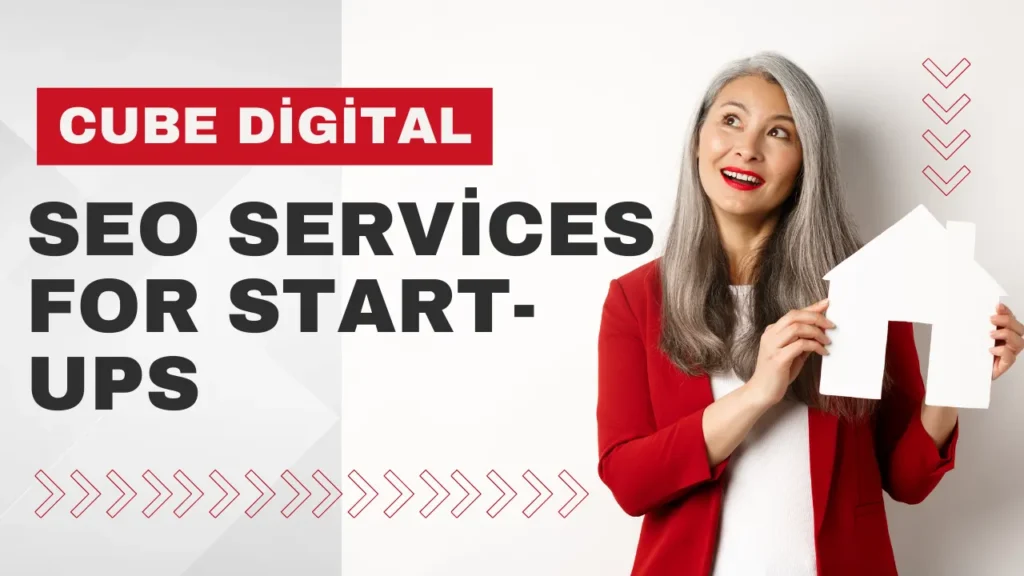
It is much more difficult for startups to go online than other businesses in the fast-changing digital environment. If it is only the fact that startup ventures are characterized by ideas and lots of energy while low in resources and the competition can be a huge barrier, such services come as one of the necessary strategies for your startup’s growth. It shall increase your visibility and even ensure constant targeted traffic flow.
1. What Are SEO Services for Startups?
SEO, or Search Engine Optimization, refers to strategies and techniques used to improve a website’s ranking on search engines such as Google. For startups, SEO services offer solutions tailored to help maximize visibility, drive targeted traffic, and build credibility in the market.
Startups need niche SEO strategies because they compete with bigger brands and have much more budget. Professional SEO services will help a startup make waves based on the niche and audience that it attracts.
2. Why Does A Startup Need SEO?
A startup needs to operate within the confines of a low budget and lower brand recognition. That’s why investing in SEO is a must here:
- Cost-Effective: This kind of long-term growth cannot be made possible through paid advertising, and it certainly needs constant cost exposure.
- Built-in Visibility: Right SEO allows organizations to be seen on top of the search engine; it also removes the problem of finding new potential clients.
- Indication of Repute and Trustworthiness: The more rank it has, the more impression of truthfulness is told to the visitor by the company. So, in other words, companies need to make their appearance in the relevant business.
- Level Playing with Established Brands: SEO favors small-scale businesses because it enables them to play at par with any well-established company through niche-based keywords.
3. Starting Points in Startup SEO
Here are the three broad fields of focus for startups that create a great SEO strategy:
- Keyword selection is the first key that a well-designed SEO strategy looks for. First and foremost, it is extremely vital to target long-tail keywords, which have less competition and higher intent. This would simply mean that instead of going for the term “digital marketing,” a startup would look forward to targeting terms like “affordable digital marketing services for small businesses.”.
- Startups should continue creating good, interesting content—blogs, videos, infographics, and guides that would solve the pain areas of their audience.
- Technical SEO is the optimization of what happens behind the pages of a website. The features are site speed, mobile-friendliness, and crawl-friendliness for search engines.
4. On-page Optimization for Startups
This is optimization of the surface levels of a website, both to the eyes of the search engines and that they are user-friendly and look attractive to both categories.
- Region a startup should major in: Titles and Meta Descriptions contain targeted keywords, thereby being worth getting clicks.
- Internal Linking: They must link the pages on the website. So many benefits to get when improving navigation and also passing out link equity.
- Optimize Headlines: Using keyword-rich headlines that are also user-friendly.
5. Off-Page SEO Tactics
Off-page SEO is building the authority and trust of your brand outside your website. These include:
- Link Building: Getting good quality backlinks from reliable websites.
- Social Media Marketing: Posting on LinkedIn, Instagram, and Twitter to drive engagement.
- Guest Blogging: Guest posting on industry sites to be seen and also to obtain a few backlinks.
6. Local SEO for Startups
If your startup business is based out of some local place, then local SEO would be a must for the companies. Some of the important ones are the following:
- Google My Business: Claim and optimize profile for local search listings
- NAP Consistency: Ensure consistency of Name, Address, and Phone Number across directories.
- Local Keywords: Target local keywords such as “startup SEO services in New York.”
7. Measuring and Analyzing SEO Performance
Measuring and analyzing the performance of the SEO is quite a significant process. In measuring as well as analysis, such items have to be answered for by the startups:
- Organic Traffic: Make use of the Google Analytics tool and monitor the increase in terms of traffic.
- Keyword Rankings: Track the evolutions of target keywords.
- Bounce Rate and Engagement: High bounce rates might indicate a problem with poor content or UX issues.
8. Problems Faced by Start-ups while Doing SEO
However, no matter how lucrative SEO may sound, there are many problems that start-ups may face as well:
- Low Budget: Spending too much time and money is another concern in terms of the cost incurred on SEO; this would hardly be easy for any start-up.
- High Competition: Relatively challenging to compete with big brands.
- No in-house expertise: Most startups do not have in-house talent related to SEO.
This is very often compensated by association with SEO agencies specializing in startups.
9. The Right SEO Service Provider
The right choice of an SEO service provider is fairly critical to success. Startups should look for agencies that understand the ecosystem of a startup and are going to provide customized strategies rather than generic solutions.
Transparency in Reporting: Periodic reporting on performance metrics accountability.
Proven results. Look for case studies or testimonials from other similar startups.
10. Future of SEO Trends for Startups
The SEO landscape is changing. And to keep in the game, this startup needs to know these developments:
- Voice Search Optimization: Content that answers conversational queries.
- AI and Machine Learning: Use of tools such as ChatGPT for generating content with less human intervention
- Core Web Vitals: site speed, interactivity, visual stability
Conclusion
In this way, investment areas in the field of SEO services for startups remain aligned with sustainable growth. Providing the right kind of attention to niche targets based on keyword research, content marketing, and technical optimization to find a piece of the pie within this competitive digital land, coupled with the right kind of expertise, and knowing what lies ahead can help a startup optimize its online potential.
Frequently Asked Questions
Google Analytics, SEMrush, and Ahrefs are some of the most useful tools for keyword research and performance tracking.
SEO is a game that takes time, and results usually surface after 3-6 months.
That will be yes, but very limited for low-budget startups: starting from some very basic SEO practice will do. Growth will only increase with the help of a specialist.
This depends on the necessity of a local SEO service. It is required if there is a startup that needs to reach out to a specific group of local customers. A local SEO service is needed if a startup has a place to offer or it reaches out to a local population.
The price depends but may go as high as $500 to $5,000 per month depending on how wide it can get.
While PPC takes the shortcut, the company can only have long-term and sustainable growth with SEO.




